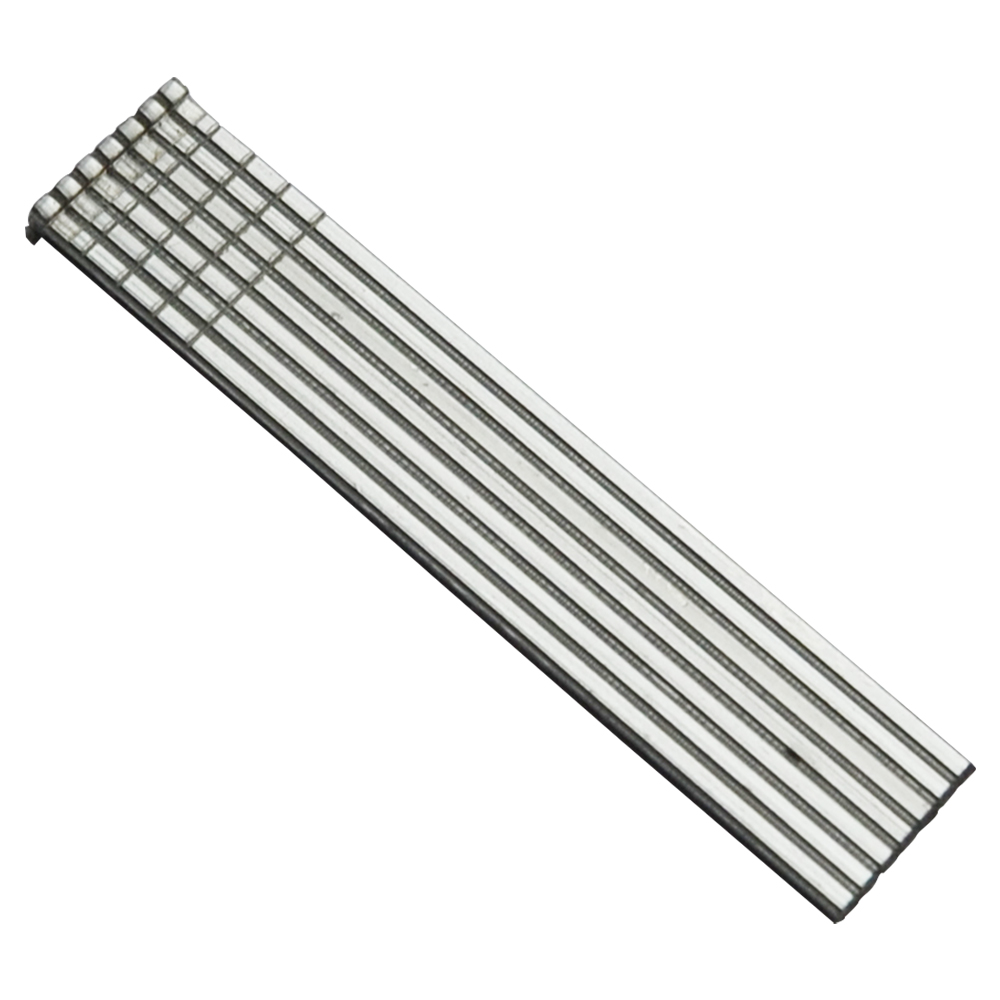18 gauge brad nails are a go-to choice for many professionals and DIY enthusiasts. These slender fasteners offer a perfect balance between holding power and minimal visibility, making them ideal for a wide range of applications.
From crafting intricate picture frames to installing baseboards, the right brad nail length can make all the difference in your project’s success.

This comprehensive chart breaks down the various sizes of 18 gauge brad nails, their common uses, and key considerations to help you choose the perfect nail for your next task.
| Length (inches) | Length (mm) | Common Uses | Notes |
|---|---|---|---|
| 3/8″ | 10 mm | Extremely thin trim, craft projects, model making | Rare size, not all nailers compatible |
| 1/2″ | 13 mm | Thin veneers, delicate trim work, small craft projects | Use caution to avoid splitting thin materials |
| 5/8″ | 16 mm | Light trim, craft projects, attaching thin moldings | Good for softer woods |
| 3/4″ | 19 mm | Shoe molding, light trim work, picture frames | Versatile size for many small projects |
| 7/8″ | 22 mm | Decorative trim, thin baseboards, cabinet work | Balances holding power and minimal visibility |
| 1″ | 25 mm | Standard baseboards, crown molding, general trim | Most common size, widely available |
| 1-1/8″ | 28 mm | Thicker baseboards, window trim, door casings | Good all-purpose size for most trim work |
| 1-1/4″ | 32 mm | Door casings, chair rail, heavier baseboards | Provides extra holding power for larger trim |
| 1-3/8″ | 35 mm | Thick door casings, large crown molding | Useful for joining thicker materials |
| 1-1/2″ | 38 mm | Heavy trim work, large baseboards, built-ins | Good for hardwoods and denser materials |
| 1-5/8″ | 41 mm | Substantial trim pieces, joining thicker boards | Ensures deep penetration in base material |
| 1-3/4″ | 44 mm | Large crown molding, thick baseboards | Provides strong hold for heavy trim pieces |
| 1-7/8″ | 47 mm | Joining thick boards, heavy-duty trim work | Less common, check nailer compatibility |
| 2″ | 50 mm | Thick moldings, joining large pieces, furniture making | Maximum length for many 18 gauge nailers |
| 2-1/8″ | 54 mm | Custom woodworking, large-scale trim projects | Specialty size, not all nailers compatible |
| 2-1/4″ | 57 mm | Heavy-duty joining, large-scale woodworking | Check nailer specs, may require specific models |
| 2-3/8″ | 60 mm | Specialized large-scale projects | Very long for 18 gauge, limited nailer compatibility |
| 2-1/2″ | 64 mm | Custom large-scale work, thick material joining | Longest common 18 gauge, limited availability |
- Diameter: 18 gauge brad nails typically have a diameter of 0.0475 inches (1.2 mm).
- Head Type: Most 18 gauge brad nails have a small, round head that’s nearly invisible when set.
- Material: Usually made of steel, often with galvanized or stainless steel options for rust resistance.
- Finish: Available in bright, blued, or coated finishes. Some have adhesive coatings for extra holding power.
- Collation: Typically sold in strips held together by adhesive or thin wire.
- Capacity: Most 18 gauge brad nailers hold between 100 to 200 nails per magazine.
- Pressure: Typically require 70-120 PSI air pressure, varying by nailer model and nail length.
- Applications: Ideal for finish carpentry, trim work, cabinetry, and craft projects where minimal nail visibility is desired.
- Wood Types: Suitable for both softwoods and hardwoods, but be cautious with very hard or brittle woods to avoid splitting.
- Holding Power: While offering good holding power for their size, they’re not suitable for structural applications.
- Depth Adjustment: Most quality brad nailers offer depth adjustment to ensure proper setting of nails in various materials.
How to Choose
- Choose a nail length that allows at least 2/3 of the nail to penetrate the base material.
- Always test on scrap material before working on your project to ensure proper depth setting and avoid splitting.
- Be aware that longer nails may not be compatible with all 18 gauge brad nailers. Always check your tool’s specifications.
- When working with hardwoods or near edges, pre-drilling can help prevent splitting.
- For outdoor or high-humidity applications, use stainless steel or galvanized nails to prevent rusting.
